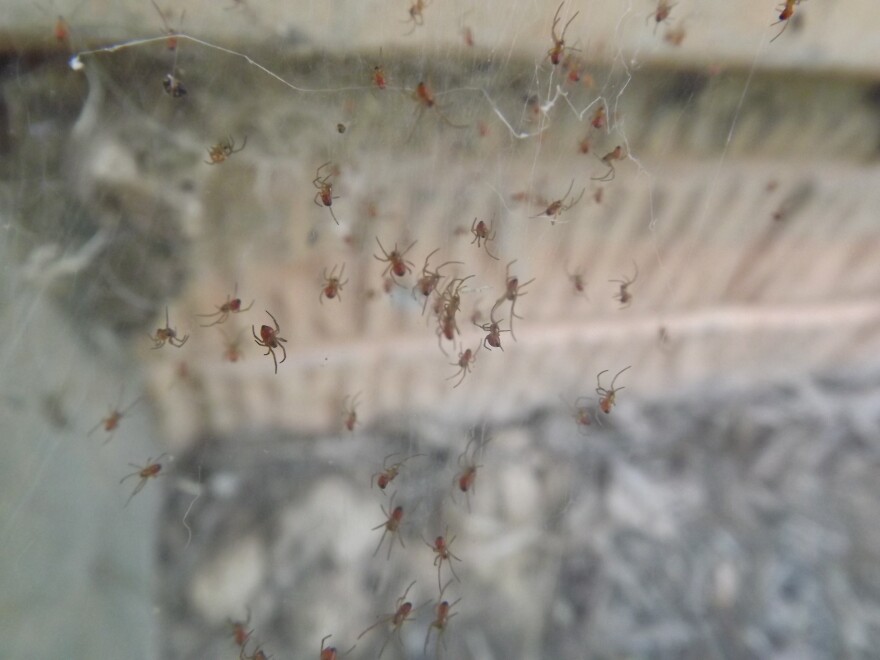The first time Jackson Landers spotted a black widow spider on his front porch, he was transfixed. The nature writer grew curious about the poisonous arachnids and even kept one as a pet in a jar for months.
"When you're confronted by this deadly, venomous thing day after day, you can't help but become interested in it," Landers tells NPR's Arun Rath.
One day, he got bit.
Landers, who wrote about his experience in the New York Times, says he really should have known better. He'd been eliminating the spiders on his front porch for weeks and knew the places they liked to burrow — like shoes.
One winter day, he decided to go fishing. He grabbed a pair of water shoes that had been sitting on his front porch, drove out to the fishing spot and put them on. A few steps later, he felt a stinging sensation in his foot.
"At first, I thought maybe it was I had a thorn or something in the shoe," he says. "And then, it got worse. Then it felt like an insect bite, felt like a bee sting or something." When he took the shoe off, he saw two tiny little pin-pricks in his foot — and the squished remains of a black widow spider inside his shoe.
He settled into denial about what was happening, he says. Concerned that he might pass out if pain kicked in while he was on the road, he waited to see how the symptoms progressed. He went on fishing and caught three catfish.
It was too ridiculous a concept, Landers thought to himself, that a nature writer — who is constantly putting himself in dangerous situations — would fall prey to the same creature he'd been observing at his desk week after week.
"I had been posting photos of black widows on Facebook for months and had been reading about black widow bites and the effects of the venom. Of all the millions of people in the U.S. who are around black widows every day and don't get hurt," he says. "What are the odds that I would get bitten? It just seemed like something out of a movie."
Based on his research, Landers knew that, as a healthy individual, it was very unlikely that he would die from the bite. The pain continued to get worse, however. Black widow venom is a neurotoxin that causes muscle spasms and contractions.
"I felt this warmth in my abdomen, and then the warmth turned into a tightness. And then the tightness turned into pain, and it was like being punched in the stomach," he recalls.
At that point, Landers knew he had to get home while he was still able to drive.
His mother met him there and drove him to the hospital. "By the time I got into the parking lot in the ER," he says, the pain "was like a vice grabbing my abdomen and squeezing."

Word spread quickly around the hospital about the black widow bite patient in the emergency room — a rare event. A steady cycle of residents and medical students poured through the ER to gawk at him.
Coincidentally, the hospital was doing a study with an experimental antivenin. It had only previously been tested on three people, and, as a toxicologist explained, two of those patients may have gotten the placebo instead. Would Landers like to be the fourth person to join the study?
He decided to take the risk. When they injected the substance into his I.V., he knew it was no placebo.
"It was this incredible, magical warmth that spread through my arm. I could feel it spreading through my arm and my chest," Landers says. "And it was a wave of relief as pain was erased."
Within 10 minutes, he was discharged.
About a month ago, Landers moved out of the spider-ridden house. Still, he says, whenever he sees a messy widow web close to the ground, he can't help but stop and stare at it.
Copyright 2021 NPR. To see more, visit https://www.npr.org.


